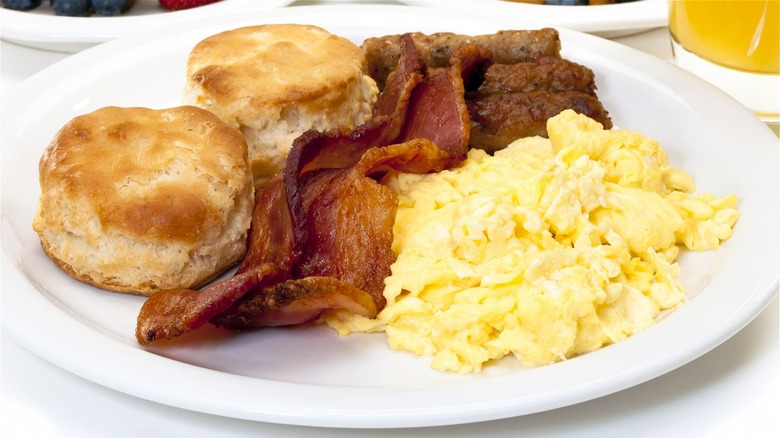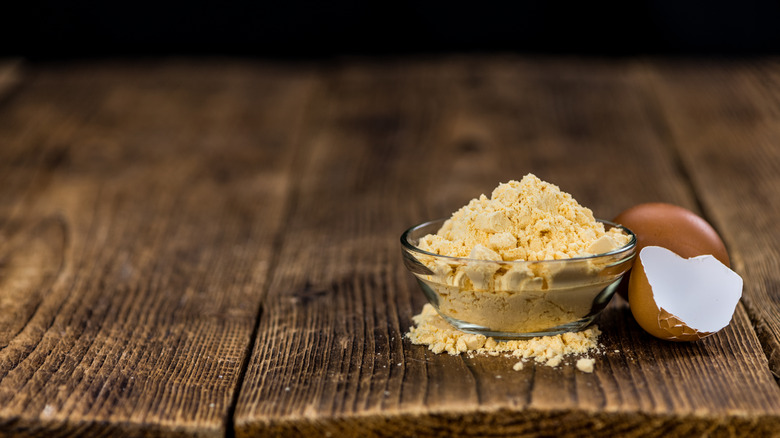Are Scrambled Eggs Actually Real At Buffets?
We can't deny that something is fascinating about buffets – the allure of paying a single flat fee, then being able to eat as much as you want of whatever you want. Steak? You got it. Pizza? Of course. Cake? There are five different flavors: Take a slice of each. However, as exciting as this concept may seem, buffets are also pretty gross when you think about it. For example, a buffet's scrambled eggs might not even be made from fresh eggs. Sorry, everyone.
But, what are scrambled eggs at a buffet if not fresh eggs? Some buffets lean toward using powdered eggs. To be fair, powdered eggs are made from real eggs but they have been dehydrated in the same way as dehydrated milk. As strange as it sounds, buffets do have a few fair reasons to choose powdered eggs over fresh eggs, and no, the powdered eggs won't hurt you.
What's the deal with the scrambled eggs at buffets?
Why do so many buffets use powdered eggs instead of fresh eggs? Well, most obviously, using powdered eggs saves buffets time. Unlike fresh eggs, with their troublesome shells and finicky cooking time, powdered eggs require less preparation. There's no need to spend time cracking dozens and dozens of eggs to feed buffet-goers when you can mix one part powdered eggs with two parts water to create the same result.
Powdered eggs also come with the benefits of having a long shelf life — we're talking five to 10 years, folks — while liquid eggs can last for up to a week in the refrigerator or up to 12 months when frozen. In comparison, fresh eggs last only a few weeks in the refrigerator, or up to a year in the freezer. As such, powdered eggs are a much safer option for buying in bulk, which buffets routinely do. They're also much cheaper, which is a major perk amid the increasing price of eggs.
In terms of nutrition, powdered eggs do lose some of their vitamins and minerals through the dehydration process, but they're still a good source of protein and other nutrients. Keep in mind, however, that powdered eggs are packed with sodium. Other than that, they taste fairly similar to regular eggs, and they're perfectly safe to eat.

